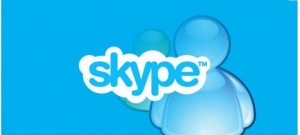Skype Needs to Increase Its Growth Level
Running my business from Sweden, the ecosystem has always been founded on companies like Ericsson, who set the standards for the industry. But when Skype was bought by Microsoft in 2011 for $2.6bn, it totally changed that ecosystem.
It inspired us personally to start a business, and it has also changed the way students think about their future. Graduates used to have to choose between academia and a job in a big company – now they know they can start their own company and disrupt multibillion-dollar industries with little-to-none initial investments.
The real power of Skype’s business – along with Viber and the rest of the wave of VoIP and messaging apps – is the value of the network effect, of millions of users creating a peer-to-peer network. If nobody were on Skype, the innovation wouldn’t matter.
The incumbent telecoms firms have repeatedly failed to understand the phenomenon of network effect, choosing instead to spend years and billions of dollars on research and development. By the time they have a product ready, the market is already saturated.
All operators will be pushed towards IP-based networks
Startups, on the other hand, have the advantage of speed – even if they fail, they fail quickly. Until now, operators have until now been living on old business models and not been fast enough to adapt to the lightning fast speed of change in the consumer markets. Now that the industry is evolving towards 4G, which is IP based, operators will eventually be forced to VoIP.
I would argue that they have already missed the boat, and are now only a distribution channel that carries the customers to the market with increasingly lower margins. This very inflexibility of the operators has made it a fruitful market for startups to come and disrupt.

Operators are also geographically limited due to infrastructure and legislation issues, while apps are not. An app with well-executed strategy can easily fully utilise the network effect and become big in very short time.
The tipping point for Skype was when people started inviting their friends to use the service. This ‘virality’ was driven by users’ motivation to make the service more useful for themselves – but that’s when organic growth happens.
Microsoft’s acquisition: a challenge, not an advantage
If network effect can explain Skype’s exponential growth, then where does the next opportunity lie?
Post Microsoft acquisition, as for any successful startup, the challenge was for Skype to retain the small and agile mindset but go for growth using Microsoft’s huge user base and product spectrum.
The new generation communications companies – the VoIP and messaging services of Skype, Israel’s Viber and KakaoTalk, from South Korea – had to think globally from day one because their local markets were too small for significant growth. Growth is hardwired into what they do.
If your startup reaches a point where one of the Four Horseman – Google, Facebook, Microsoft & Apple – is interested in acquiring your company, then comes the big question of “should I sell”. We all know about economies of scale and the power these companies can provide, but also there is the evident risk of being crushed inside these huge gearbox companies. Some very big deals end up in zombie companies consumed within these giants, whereas other startups keep growing and become giants themselves one day.
Compare Skype with the vitality and ambition of Viber and KakaoTalk, and the challenge looks clear. Post acquisition, the position and strategy a company designs for itself determines its whole future.